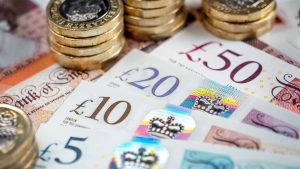At under £2, is the BT share price a no-brainer buy sign?


The BT Group (LSE: BT.A) share price has gained 27% so far in 2025. But it’s been falling back a bit in the past few months, and that’s making me perk up and think I might be seeing an attractive buying opportunity.
I doubt any stock is a literal no-brainer-at-all choice. But the more I look at BT these days, the more I’m warming to it as a potential Stocks and Shares ISA candidate. Let me explain.
Dividends and debt?
I think it’s fair to say UK investors have had a mixed relationship with BT over the years. And I reckon a lot of it has been to do with two key factors: dividends and debt.
I’ve shied away from stocks paying big dividends while carrying large levels of debt. But the more time goes on, the more I’m becoming convinced I’ve perhaps been too pessimistic.
I mean, so what if a company has debt? If it can afford to service it at favourable costs, while still having enough cash to pour into shareholders’ pockets each year… what’s the problem?
Count the cost
For the year ended March 2025, BT repaid £2.1bn in borrowings and shelled out £960m in interest payments. That sounds like a lot… but it doesn’t look too bad compared to adjusted operating costs of £17.1bn. By comparison, servicing debt seems like a relatively small item in the accounts.
The cost of dividends for the year was even less, at £788m. And BT still recorded normalised free cash flow of £1.6bn.
It really doesn’t look like paying the dividend is a problem, and stopping it would surely only have a small effect on total debt. Saying that, net debt was up at £19.8bn, and I still see it as the main threat to future dividends — even if it might be a less of a danger than I used to think.
Future cash cow
Analysts don’t foresee any pressure on the dividend — currently forecast at 4.5% — in the next few years. In fact, forecasts suggest a 10% increase between 2025 and 2028. They show cover by earnings rising to about 1.8 times in the same timescale, and that’s good enough for me.
Saying this, I do still need to temper my new-found optimism a little. BT did suspend its dividend in 2020, and resumed at a lower level afterwards. Cash flow and debt played a part, and could do so again.
Longer-term cash flow can still be unpredictable in this business. BT’s capital expenditure might be past its recent peak… but we really have no idea what future technologies might need.
Take the cash
Even with my dislike for debt, there’s a lot to be said for adopting a simple strategy: keep taking the dividends, and don’t worry about anything else.
BT’s forecast price-to-earnings (P/E) ratio is 13, falling as low as 11.5 by 2028. At that level, today’s BT share price makes me think I see a potentially undervalued long-term cash cow here. Definitely one to consider buying, I’d say.
The post At under £2, is the BT share price a no-brainer buy sign? appeared first on The Motley Fool UK.
Should you invest £1,000 in BT Group right now?
When investing expert Mark Rogers has a stock tip, it can pay to listen. After all, the flagship Motley Fool Share Advisor newsletter he has run for nearly a decade has provided thousands of paying members with top stock recommendations from the UK and US markets.
And right now, Mark thinks there are 6 standout stocks that investors should consider buying. Want to see if BT Group made the list?
More reading
- How an investor can prepare for a potential FTSE 100 market crash
- Here’s the dividend forecast for BT shares through to 2028!
- BTâs share price is tipped to rise 11% over the next year! Can it?
- Could the BT share price take off?
- Forecast: in 2026, the BT share price could turn £20,000 into…
Alan Oscroft has no position in any of the shares mentioned. The Motley Fool UK has no position in any of the shares mentioned. Views expressed on the companies mentioned in this article are those of the writer and therefore may differ from the official recommendations we make in our subscription services such as Share Advisor, Hidden Winners and Pro. Here at The Motley Fool we believe that considering a diverse range of insights makes us better investors.





